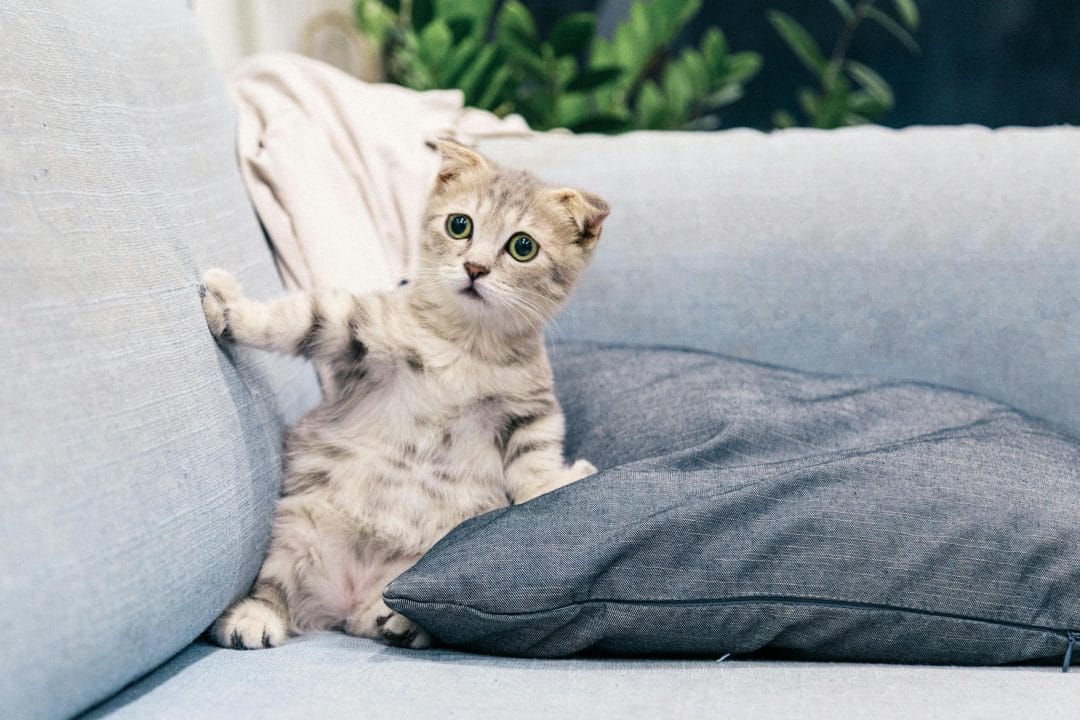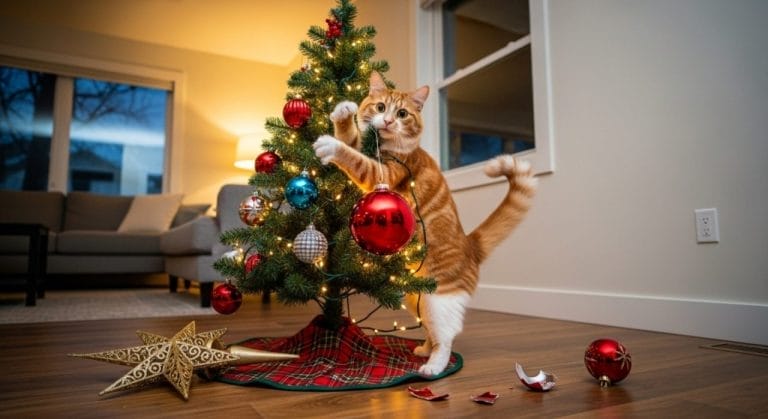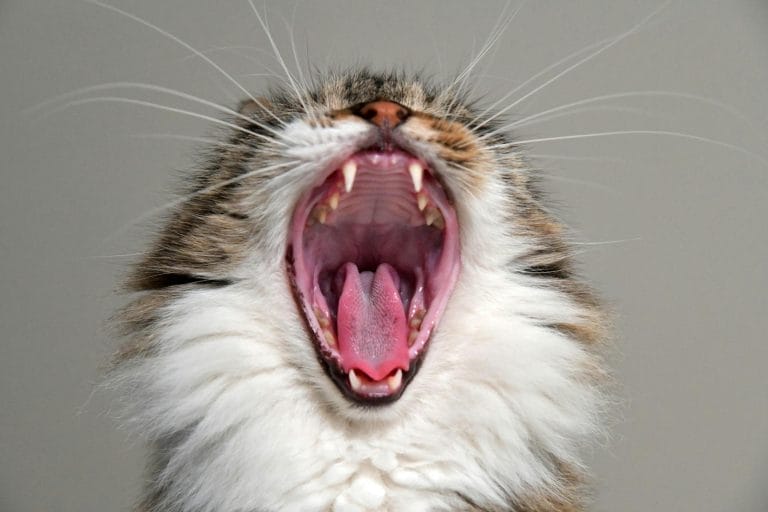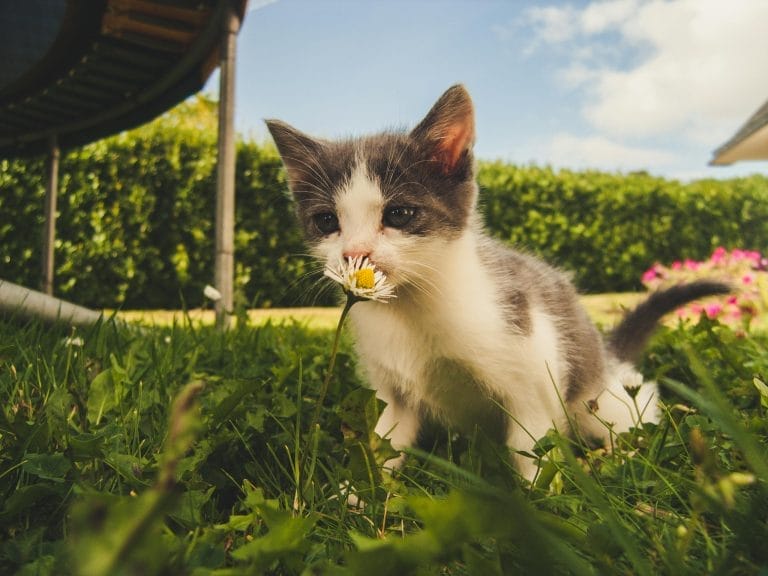8 Things You’re Doing That Your Cat Secretly Hates
You think you’re showing love, but your cat might be plotting revenge.
Let’s be honest—cats are judgmental little creatures. They sit there with those piercing eyes, silently critiquing your every move.
And guess what? Science backs this up. Recent research shows we humans misread our cats’ stress signals about one-third of the time. That’s like failing a test where the answers are literally staring you in the face.
So what are you doing that’s making your feline friend secretly hate you? Let’s dive in.
Forcing Hugs and Cuddles on Them
You see your cat lounging peacefully and think, “Perfect time for a snuggle!” Wrong.
Most cats don’t enjoy being hugged, and when they try to get away, we often double down and try even harder to hug them. It’s like when someone won’t stop tickling you after you’ve asked them to stop—except your cat can’t tell you with words, so they’re just internally screaming.
Research from 2021 found that cats prefer a “hands off” approach to petting and dislike having attention forced on them.
Forced interactions actually show up in studies measuring oxytocin—securely attached cats who get to control the interaction show increased oxytocin, while anxiously attached cats who experience forced interaction show decreased oxytocin and higher stress.
Think of your cat like that one friend who needs space at parties. They’ll come to you when they’re ready.
By the way, if you're into Informative stuff, you’ll wanna check this one out: 8 Things You Should NEVER Do to Your Cat
Staring Directly Into Their Eyes
Maintaining intense eye contact with your cat might feel like a bonding moment for you. For them? It’s a challenge to a duel.
Prolonged eye contact without blinking can indicate distress or fear in cats. Between cats, direct eye contact is often a sign of aggression in the moments before a territory dispute.
Here’s the thing—your cat isn’t a dog. Research on cat communication shows that slow blinks are associated with positive emotional communication, while hard stares signal threat or aggression.
Want to actually bond with your cat? Try the “cat kiss”—make eye contact and slowly blink at them. It’s like saying “I trust you” in cat language.
Oh, and speaking of Informative, here’s another one you might like: How to Keep Peace in a Multi-Cat Home (Stress-Free Tips!)
Leaving Their Litter Box Dirty
Imagine if someone asked you to use a bathroom that hadn’t been cleaned in three days. Disgusting, right?
Cats have a sense of smell that’s 14 times greater than ours, so a stinky litter box is way more offensive to them than it is to us. And litter box avoidance is one of the most common problems cat owners face—usually because the box is just gross.
You should scoop daily and change the litter completely every two weeks. Your cat will thank you by not peeing on your favorite rug.
Also, just throwing this in—this Informative post is a fun read too: 10 Heartwarming Signs Your Cat Really Loves You
Blasting Loud Music, Vacuuming, or Generally Being Noisy
Your cat has superhero-level hearing, which means your normal everyday sounds are like someone blasting death metal directly into their ears.
Loud noises activate the part of a cat’s brain that governs the fight, flight, or freeze response, which can result in increased aggression, skittish behavior, loss of appetite, over-grooming that leads to bald patches, or litter box problems.
Thunder, fireworks, vacuum cleaners, your loud sneeze—all of these can send your cat running for cover. Cats have extremely sensitive paw pads full of nerve endings, and they use their paws to explore the world around them.
Pro tip: If you’re vacuuming or having a party, give your cat a quiet room to retreat to. They’ll appreciate having an escape route from the chaos.
Overdoing the Petting
Ever been petting your cat when suddenly—BAM—they bite or scratch you out of nowhere? That’s not “out of nowhere.” You just missed the warning signs.
Cats can become overstimulated from too much petting. Getting to know your cat’s body language will help you understand where and how they like to be petted, and for how long.
Watch for the telltale signs: tail flicking, ears pulled back, skin twitching. These are your cat’s way of saying “okay, that’s enough now.” If you keep going, you’re basically asking to become a scratching post.
It’s like when someone keeps talking to you when you’re clearly trying to focus on something else. Just read the room—or in this case, read the cat.
Treating Them Like Dogs
Here’s a controversial take: Cats are not small dogs.
A huge pet peeve of cats is the assumption that they have the same needs and behaviors as a small dog—nothing could be further from the truth, and cats are truly appalled at the comparison.
Dogs love unconditional adoration, constant interaction, and will happily follow you anywhere. Cats? They’re independent contractors who happen to live in your house. Research shows that cats prefer to deal with things in their own heads rather than looking to humans for guidance in unfamiliar situations.
Stop expecting your cat to act like a golden retriever, and you’ll both be happier.
Using Water Bottles or Physical Discipline
Squirting your cat with water when they misbehave seems harmless, right? Actually, it’s just making them wary of you.
Using deterrents like water-squirt-bottles only serves to make the cat wary of you and doesn’t really stop the behavior. Cats need enrichment and positive reinforcement, not punishment.
Physical discipline doesn’t communicate to cats. By nature, cats are dominant, independent animals, which makes them reactive to physical discipline and breaks their trust.
Think about it—when your cat scratches the furniture, they’re not being spiteful. They’re doing what cats do. The solution? Give them better scratching options and reward them when they use those instead.
Ignoring Them or Leaving Them Alone Too Long
Cats have this reputation for being aloof and not needing anyone. That’s mostly a myth.
Cats need companionship as much as any other creature. Behavior problems can result if a cat is left alone or ignored too often. Even though cats like to be independent, that doesn’t mean they want to be alone all the time.
Studies show that cats with fewer interactions with people and longer periods of time left alone displayed higher numbers of problematic behaviors and were perceived to have higher anxiety levels.
Your cat may act like they don’t care whether you’re home or not, but trust me—they notice. They’re just too proud to beg for attention like a dog would.
The Bottom Line
Cats aren’t mysterious or impossible to understand—we’re just terrible at reading their signals.
Research found that cats gravitate towards humans who read their subtle behavioral cues and allow them choice and control in how much engagement they’re given.
So maybe stop forcing your love on them, respect their boundaries, and actually pay attention to what they’re telling you. Your cat will go from tolerating you to actually liking you.
And isn’t that what we all want? A cat that doesn’t plot our demise every time we walk into the room.
Now go apologize to your cat. They’ve been judging you this whole time.







